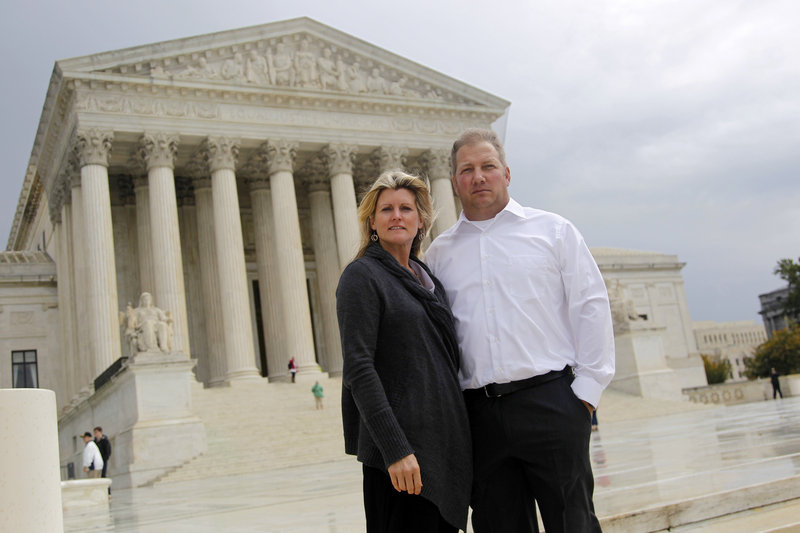WASHINGTON – The Supreme Court ruled unanimously Wednesday that property owners have a right to prompt review by a judge of an important tool used by the Environmental Protection Agency to address water pollution.
The court sided with an Idaho couple who object to an EPA order that blocked construction of their new home near a scenic lake and threatened fines of more than $30,000 a day.
Wednesday’s decision is a victory for Mike and Chantell Sackett, whose property near Priest Lake has sat undisturbed since the EPA ordered a halt to work in 2007.
The agency said part of the property was a wetlands that could not be disturbed without a permit.
In an opinion by Justice Antonin Scalia, the court rejected EPA’s argument that allowing property owners quick access to courts to contest orders like the one issued to the Sacketts would compromise the agency’s ability to deal with water pollution.
“Compliance orders will remain an effective means of securing prompt voluntary compliance in those many cases where there is no substantial basis to question their validity,” Scalia said.
In this case, the couple contested the determination that their small lot contained wetlands that are regulated by the Clean Water Act, and they complained there was no reasonable way to challenge the order without risking fines that can mount quickly.
The Sacketts now will be able to argue in federal court that their land should not be subject to EPA regulation, said their lawyer, Damien Schiff.
The EPA issues nearly 3,000 administrative compliance orders a year that call on alleged violators of environmental laws to stop what they’re doing and repair the harm they’ve caused.
Major business groups, homebuilders, road builders and agricultural interests all joined the Sacketts in urging the court to make it easier to contest EPA compliance orders issued under several environmental laws.
In a separate opinion, Justice Samuel Alito called on Congress to clear up confusion over the reach of the Clean Water Act. Alito said that federal regulators could assert authority over any property that is wet for even part of the year, not just rivers and streams.
Send questions/comments to the editors.



Success. Please wait for the page to reload. If the page does not reload within 5 seconds, please refresh the page.
Enter your email and password to access comments.
Hi, to comment on stories you must . This profile is in addition to your subscription and website login.
Already have a commenting profile? .
Invalid username/password.
Please check your email to confirm and complete your registration.
Only subscribers are eligible to post comments. Please subscribe or login first for digital access. Here’s why.
Use the form below to reset your password. When you've submitted your account email, we will send an email with a reset code.